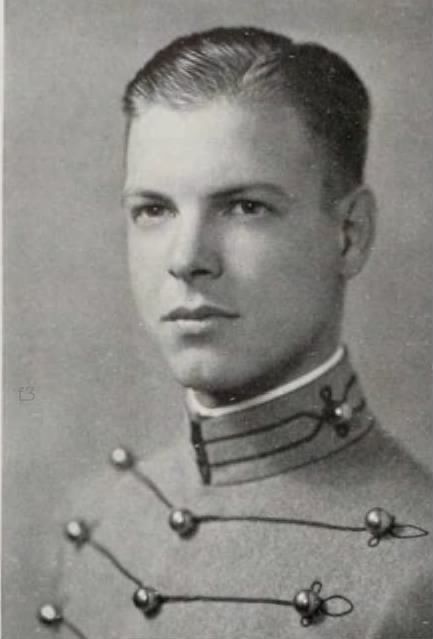Homer Harvey Uglow was born on September 20, 1911, in Scottsbluff, Scotts Bluff County, Nebraska. He was the son of Charles Herbert Uglow and Clarinda Evelyn Johnson. He was married to Sarita Rodriguez. He graduated from Scottsbluff High School in 1928, later studying at Nebraska State Normal College and Union College while working on the family farm. He eventually became a teacher at Victory Hill School in Scottsbluff. He entered the United States Military Academy at West Point on July 1, 1933, and after completing Beast Barracks, was assigned to Company “L,” where he remained until his graduation in 1937. Upon graduating, Homer was commissioned as a second lieutenant in the Infantry and assigned to the 29th Infantry Regiment at Fort Benning, Georgia. Known for his dedication, he successfully coached his company’s team to a regimental championship and once defended a soldier in a court-martial, winning acquittal through clever reasoning. He received orders to Fort William McKinley, Philippine Islands, with assignment to the 45th Infantry Regiment (Philippine Scouts). He reported there for duty on February 14, 1940, and was promoted to captain on September 9, 1940.
Homer served in the defense of Bataan as Assistant G-2 for the South Luzon Forces, Bataan Defense Force, and II Philippine Corps from December 1941 to April 1942. Promoted to major on April 4, 1942, he commanded the 1st Battalion, 45th Infantry Regiment, and was wounded by shrapnel shortly before Bataan’s surrender but stayed with his men. Captured by Japanese forces on April 10, he endured the Bataan Death March despite his injuries. Though initially reported dead, he survived nearly three years as a POW, held in O’Donnell, Cabanatuan, Davao, and Bilibid prisons.
In December 1944, Major Homer was among thousands of American POWs transported from the Philippines to Japan ahead of advancing U.S. forces. He survived the bombings of the Oryoku Maru and Enoura Maru but died aboard the Brazil Maru near Moji Harbor, Japan, on January 28, 1945, from heart failure caused by starvation and exposure. His remains were cremated in Moji and later reinterred at the Yokohama Cremation Memorial. He also has a cenotaph in the Fairview Cemetery, Scottsbluff, Scotts Bluff County, Nebraska, USA.
Source of information: www.findagrave.com, West Point Association of Graduates

PRIVATE CITIZENS SUPPORTING AMERICA'S HERITAGE
American
War Memorials Overseas, Inc.
War Memorials Overseas, Inc.
Uglow Homer Harvey
Name:
Homer Harvey Uglow
Rank:
Major
Serial Number:
0-020708
Unit:
45th Infantry Regiment
Date of Death:
1945-01-29
State:
Nebraska
Cemetery:
British War Cem., Yokohama, Japan (CWGC)
Plot:
AA-COM
Row:
G-URN
Grave:
2
Decoration:
Silver Star, Bronze Star with Oak Leaf Cluster
Comments:
